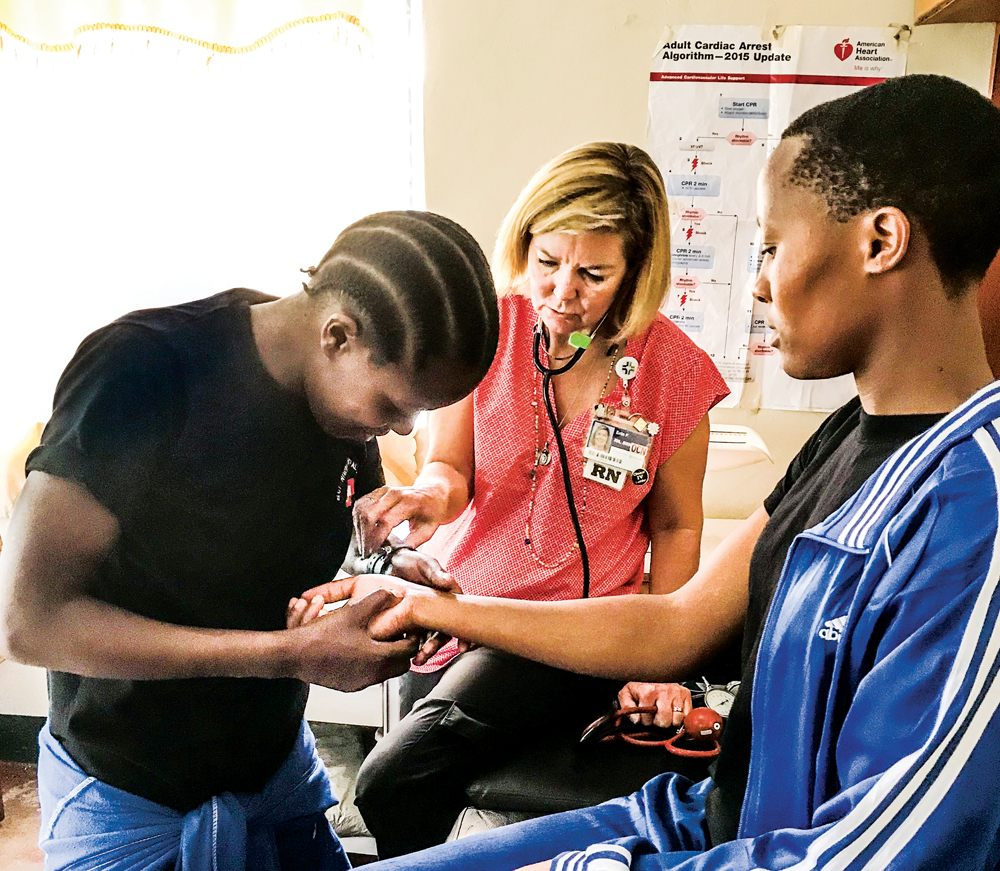
A team from SCL Health (e) traveled to Tanzania in November to offer training and assistance with medical care. As they provided medical knowledge, they gained the perspective of a culture that treats healthcare holistically. Above, Park Hill resident Erin Fahres teaches nursing students how to find a pulse.
After traveling to Tanzania for four years with a medical team from SCL (Sisters of Charity Leavenworth) Health, Stapleton resident Shelley Michas speaks with deep respect and appreciation for the healthcare network’s two partner hospitals in Tanzania, Arusha Lutheran Medical Center and Selian Hospital. She values the team’s dedication as well as the different approach to healthcare she’s observed. “The Maasai believe that when you are sick and you come into the hospital—let’s say you were bit by a mosquito that had malaria—their first question is ‘what relationship did I break?’ And so the hospital there treats that whole person,” says Michas.
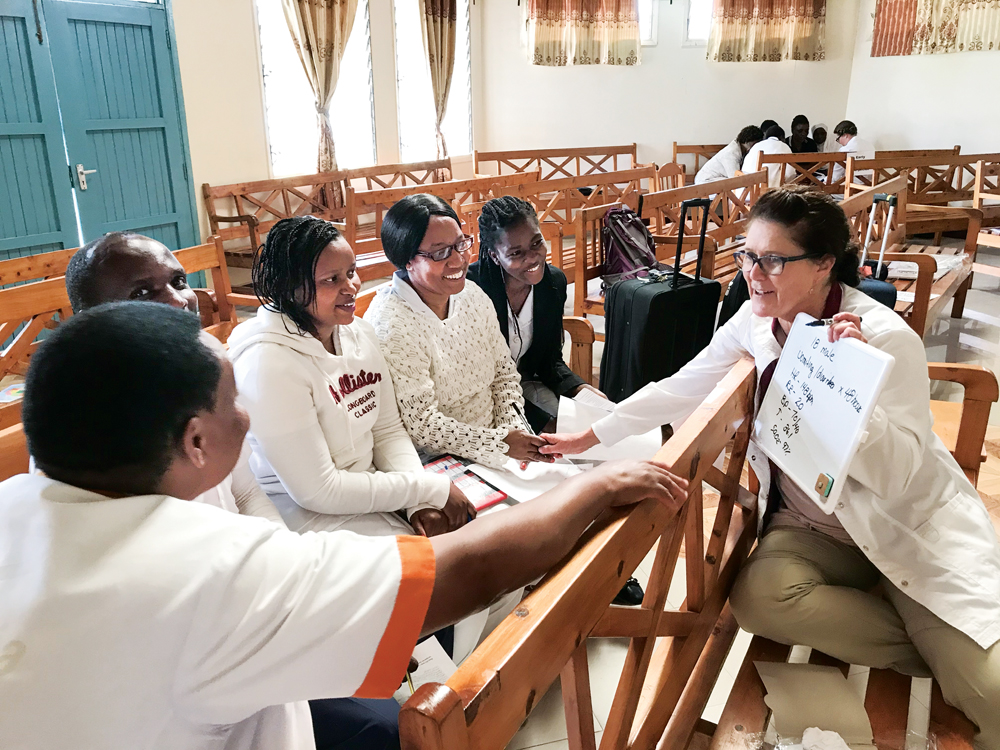
Roxanne Cook, an RN from Platte Valley Medical Center, uses a patient’s vital signs to teach the SBAR technique (situations, background, assessment and recommendations) to nurses to help them have clear communication with doctors.
Based on her experience as the International Ministry Program Lead for SCL Health, Michas suggests that Western practitioners have much to learn from Tanzanians’ more holistic conception of health, which addresses an individual’s physical, mental and spiritual wellbeing. Conversely, this different approach to illness also means that by the time clinicians see patients, they may already have been sick for quite some time and have likely explored some traditional treatments. “When they finally end up in the hospital they’re very very sick and still wondering what relationship they might have broken.”
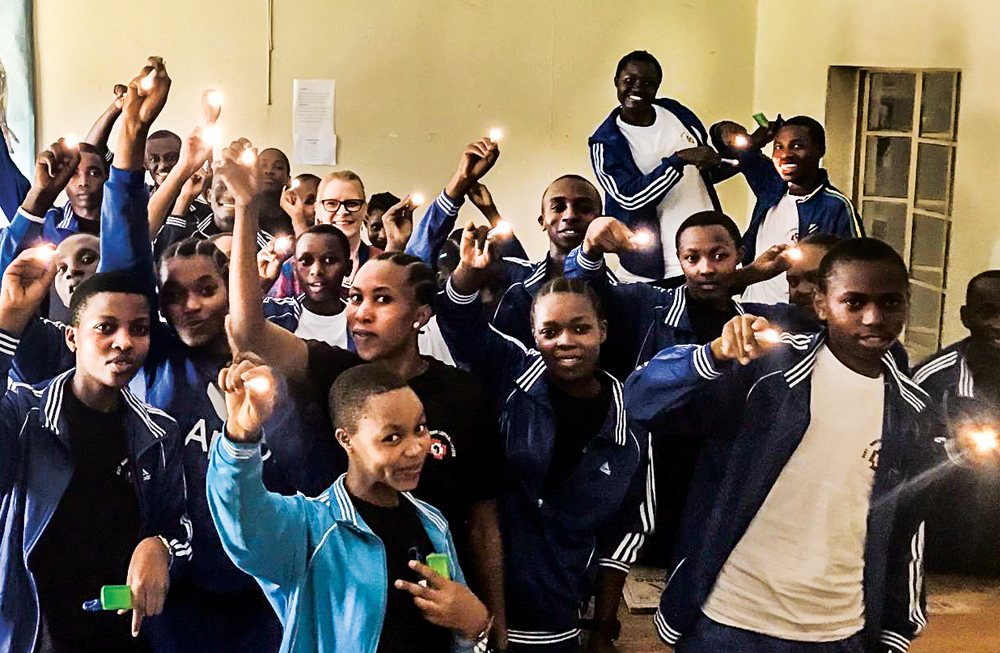
First-year nursing students pose for a fun photo with the new pen lights they will use to shine into patients’ eyes to see whether their pupils react.
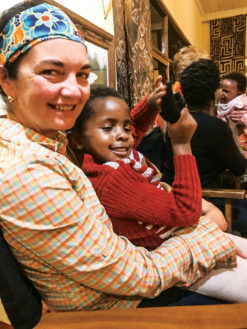
Shelley Michas’ hug with this child exemplifies the many close personal connections made between the SCL team and the Tanzanians they met.
As an employee of a Catholic healthcare network, Michas finds the Tanzanian approach reminiscent of Pope Francis’ emphasis on the four relationships. She paraphrases this as “our relationship with ourselves, with each other, with God and with the environment.” In her experience, even after treatment or a procedure resolves a medical concern in Tanzania, self-examination continues. “They still want to know how can they help fix whatever relationship was broken…and that’s the same thing when you look at being in balance in the Catholic faith.” She chuckles, not wishing to sound like she’s evangelizing, which is not part of these trips, either.
Oncology nurse Erin Fahres, who participated in the recent 2-week trip for the first time, also brought home lessons she has tried to incorporate into her work here. Her time in East Africa reminded her that “no matter where we are in the world or what our situations are, the basic needs of humanity are to be cared for and to be heard.”
With both nursing and teaching degrees, Fahres taught nursing students cancer and oncology basics among other things. “I was really pleasantly surprised by the enthusiasm and curiosity of the nursing students. They just blew me away, they were so smart and they were really so curious, and their level of questioning was amazing…they’re also really polite!”
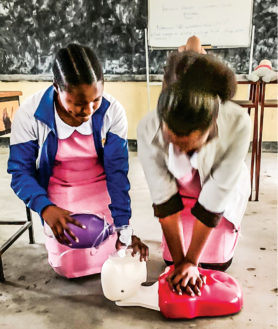 Fahres also spent a day working with Selian hospice with patients of all ages, including children—most of whom were suffering from HIV. As she reflects on that overwhelming day, she wishes she had had more time in-country and a little less jet-lag prior to seeing 20 terminal patients. Still, she believes she was meant to be in that place on that day so that she could serve these individuals. Fahres hopes the program can build more mentorship into future missions, and perhaps a debrief to allow people to process their experiences after returning stateside.
Fahres also spent a day working with Selian hospice with patients of all ages, including children—most of whom were suffering from HIV. As she reflects on that overwhelming day, she wishes she had had more time in-country and a little less jet-lag prior to seeing 20 terminal patients. Still, she believes she was meant to be in that place on that day so that she could serve these individuals. Fahres hopes the program can build more mentorship into future missions, and perhaps a debrief to allow people to process their experiences after returning stateside.
SCL Health has partnered for over 15 years with the hospitals and a nursing school to help train healthcare workers. The service trips are not, however, for those who wish to play “Barbie Savior,” the Instagram channel that parodies the culturally oblivious, self-serving Westerner traveling in Africa. Michas emphasizes that the team promotes sustainability and seeks to build capacity among local providers while “making sure that we’re not creating dependency or harming the dignity of people.”
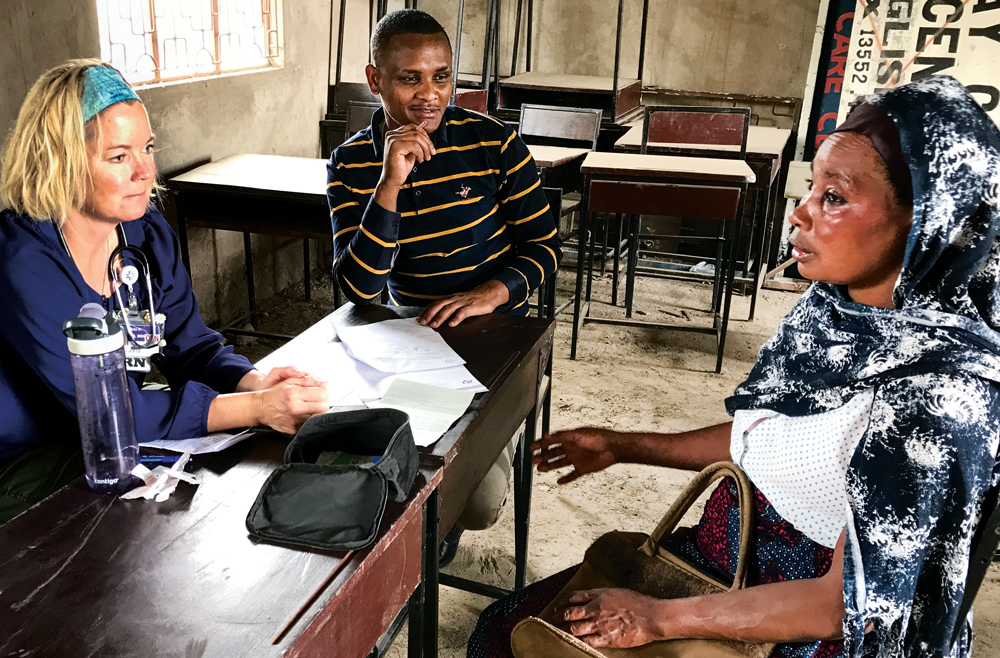
Erin Fahres and a clinician meet with a hospice patient and offer suggestions to help her manage new symptoms.
Michas’ job includes collaborating with care providers in Tanzania to identify critical needs and pairing those with the appropriate health care practitioners. “We want to make sure that the skills that are required are the skills that are going—and I do orientation and help build cultural competence. We also teach a lot about ethics and doing the right thing at the right time and ensuring that whatever we’re doing is sustainable.” In other words, training clinicians on a technique that is not sustainable once the team returns to the U.S. is not part of their ethos.
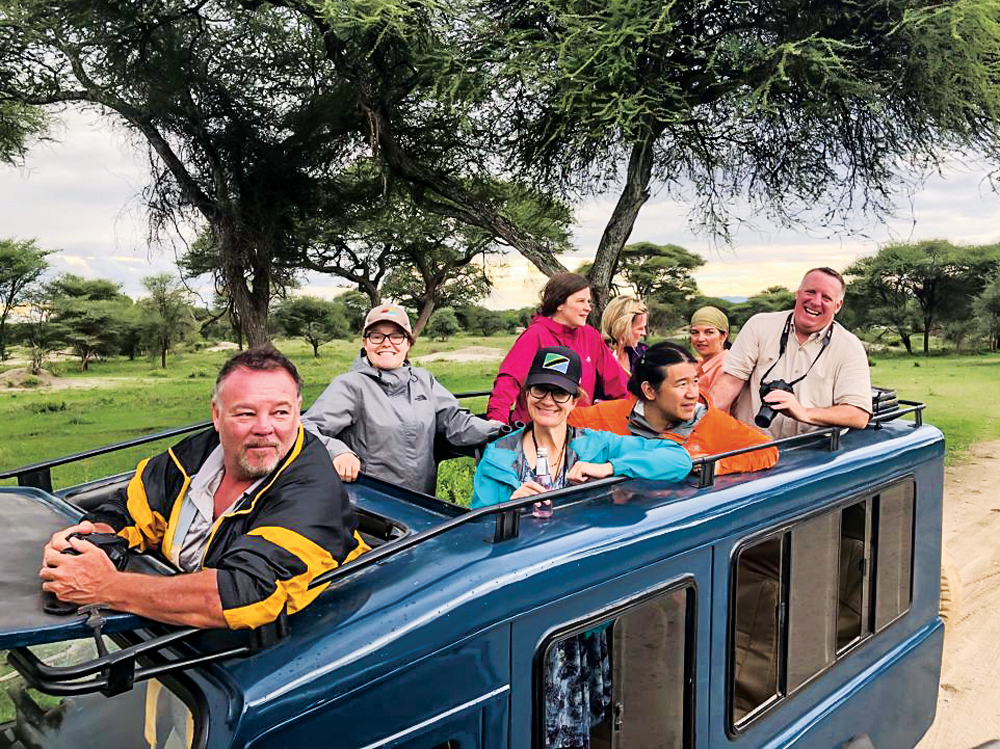
Hannah and Richard Wang (pink and orange jackets) are Park Hill residents who participated in the trip. Hannah is an ICU nurse and Richard is a doctor.
A deep sensitivity to culture and self-awareness as an outsider permeate Michas’ description of her time in Tanzania. She grapples with some of the pitfalls of international philanthropy and mission work in particular. “People have very good intentions,” she says, “but sometimes, that desire to help blinds us to things we may be doing that actually harm others. It is important to have humility and realize we have much to learn. We spend a lot of time talking about our motivations for participation. Our preparation goes beyond clinical work to understanding cultural traditions, what we post on social media, and even taking pictures.”

The 3-day safari offered views of animals in their natural habitat and stunning views of Tarangire Park in Tanzania.
Built in to each mission trip is also some time off from work in the form of a 3-day safari, says Michas. “Pope John Paul II always took people out on retreats to the mountains to renew themselves and to work on being a whole person—keeping those relationships in balance in order to make us whole.”
For more information visit https://sclhealthtanzania.wordpress.com
Photos courtesy of trip participants.



0 Comments